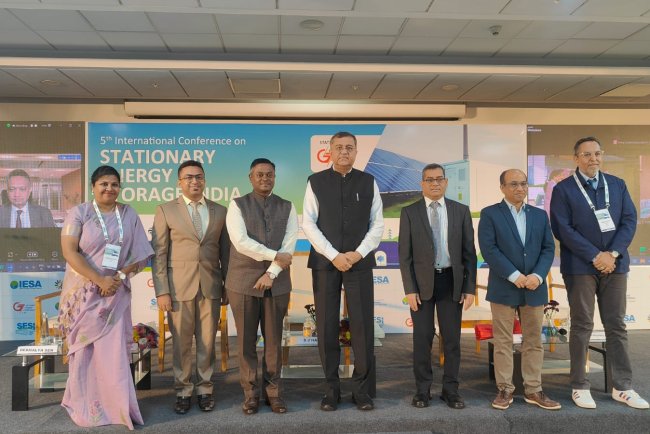NVIDIA AI Reduces Fuel Consumption and Emissions for Ships

This is a French startup known as Amphitrite, that is revolutionizing the maritime shipping business and ocean pollution by using AI along with satellite data to optimize the routes of the ship and predict ocean conditions. This innovation, supported by NVIDIA technology, will increase fuel usage efficiency and carbon emissions and help join global efforts in reducing environmental impact from shipping.
Amphitrite utilizes NASA's Sentinel-3 satellite and the SWOT mission, which are ran through AI models, to predict ocean currents, waves, and patterns of the weather with much more accuracy than traditional methods. Such predictions become very important to optimize routes for vessels, so that ships can travel efficiently across the seas. Ships can avoid rough seas by predicting weather and oceanic conditions; consumption of fuel is reduced, thereby lowering the overall carbon footprint of maritime transport.
The application includes particularly forecasting the surface ocean currents that can greatly determine fuel optimality. In a general way, once the vessel uses fewer fuels for efficient currents navigation, its emission reduces significantly. Amphitrite has proven its case; the carbon emission was reduced by 10% from a shipping line as a result of its usage in the Mediterranean Sea.
The AI models by the startup rely on NVIDIA H100 GPUs and Earth-2 simulation platforms. These are computing massive sets of satellite data with such accuracy in real-time predictions that the startups can seize ocean data in tremendous amounts - much too complex to be processed through other traditional methods. Amphitrite's AI does not only make shipping more efficient but also is helping in conserving the ocean. This includes partnerships with a specific NGO in monitoring plastic waste in the Pacific and how to minimize the footprints of these wastes on the environment.
The integration of AI with satellite imagery has greatly improved the accuracy of ocean current predictions by Amphitrite. In some cases, the AI-powered models have enhanced the analysis of global ocean currents up to twice the accuracy of conventional methods. This achievement has brought forth the possibility of AI and satellite data in changing oceanic research and commercial shipping practices.
While optimizing shipping is among the possible uses of the technology, Amphitrite's AI models can monitor everything from wave patterns to weather forecasting for diverse sectors like energy to environmental protection. The startup commits to supporting global energy transition as well as fighting urgent environmental problems-a matter mainly affecting the maritime sector.
Amphitrite's approach to integrating AI and satellite data is also remarkable for its inclusivity. The startup has a technical team with a mix of genders, and the founders have included women in key positions. This breaks barriers in a traditionally male-dominated field. The company's founders named the company after Amphitrite, the Greek goddess of the sea, in honor of an often-overlooked female figure in history, reflecting the company's commitment to diversity and innovation.
Conclusion:Apart from improving the efficiency of shipping, Amphitrite's collaboration with NGOs on ocean pollution will be part of a new movement within the tech industry using AI for environmental good. By applying the most modern technology in forecasting oceanic conditions and monitoring pollution, the company will be contributing to cleaning up the oceans and minimizing human impacts on marine ecosystems. While further developing its AI-driven models, the company's work might shape a new model that redefines how oceanography, shipping, and environmental conservation intersect. Incorporating AI into satellite data, thus, could set a promising basis for the remodeling of industries in safeguarding our oceans for the planet.
Source: Startup Amphitrite backed by NVIDIA
What's Your Reaction?

















